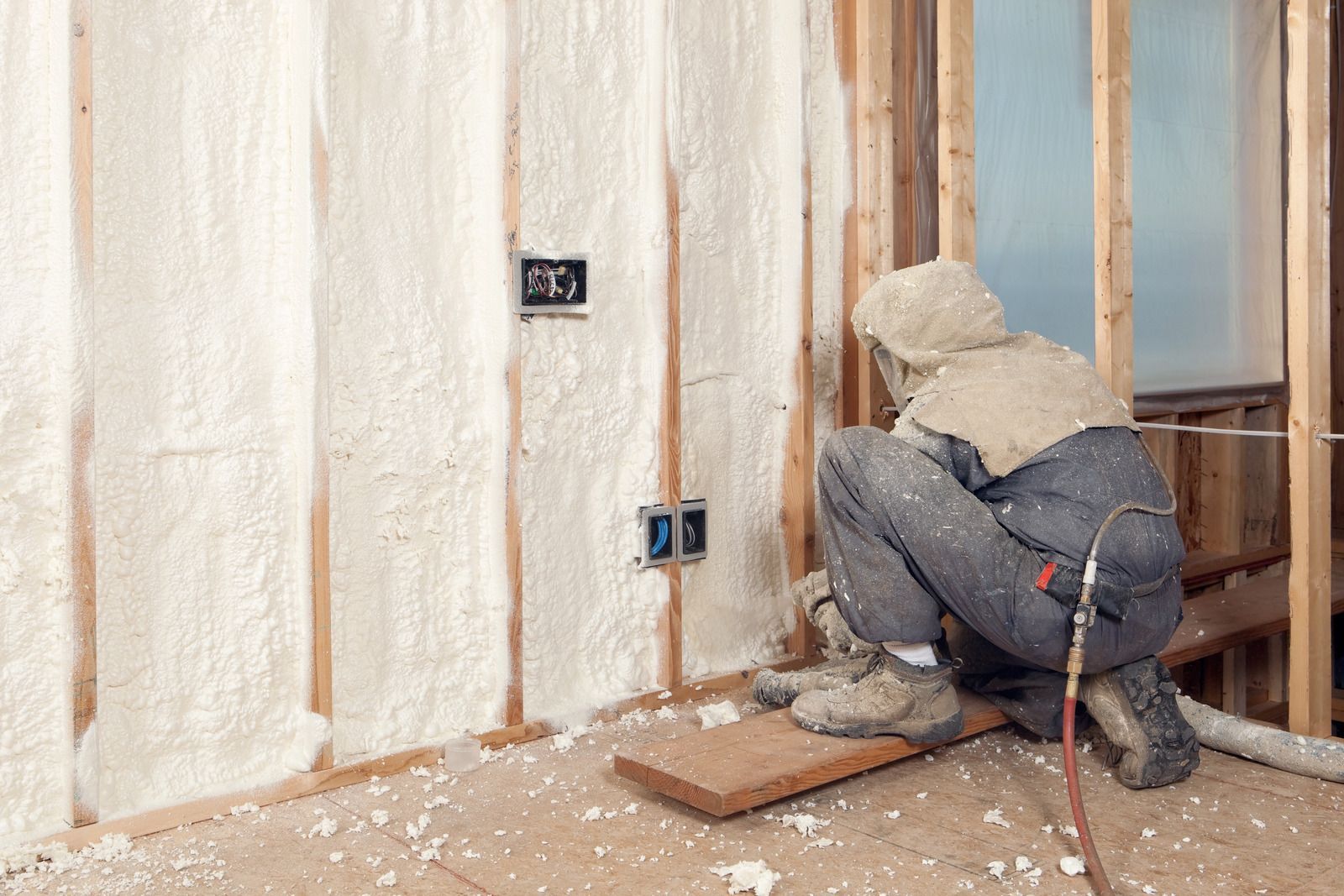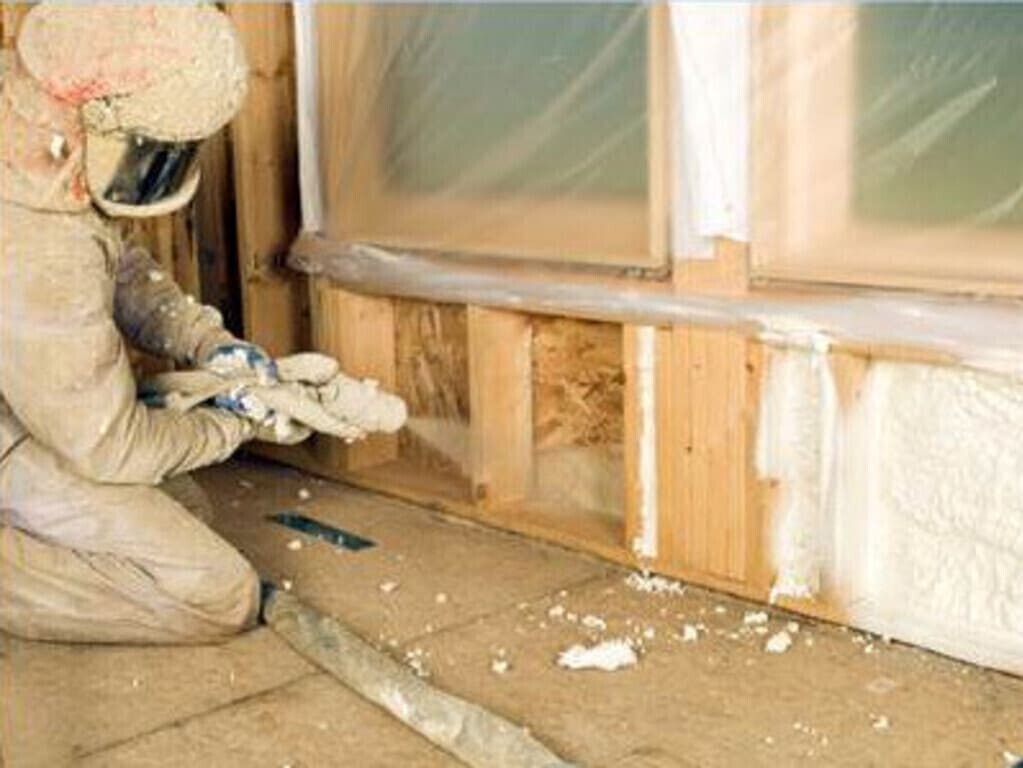Choosing to insulate with spray foam is a significant investment in a home’s performance, but the final result is only as good as the company that installs it. Unlike other insulation materials, spray foam is manufactured on-site in a complex chemical reaction, making the skill and professionalism of the installer the single most important factor in a successful project. To select the right spray foam insulation company, homeowners must ask targeted questions about their training and certification, insurance coverage, equipment, safety protocols, knowledge of building science, and their track record of proven experience. Asking these key questions is the best way to vet a contractor and ensure the job is done safely, effectively, and will provide lasting value.
A poor spray foam installation can lead to a host of problems, from poor energy performance to lingering chemical odors and even serious safety hazards. This guide, based on insights from seasoned industry professionals, provides the six essential questions every homeowner should ask to confidently separate the true experts from the underqualified operators.
1. Are You and Your Installers Certified and Trained?
This should always be the first question. Applying spray foam is not a simple trade; it is a technical process that requires a deep understanding of chemistry, building science, and safety. A reputable contractor will have invested in formal training and certification for their team.
Look for certifications from organizations like the Spray Polyurethane Foam Alliance (SPFA). The SPFA’s Professional Certification Program is the industry standard, and it requires technicians to pass rigorous exams on insulation application, safety, and building science principles. This is not just a piece of paper; it’s proof that the installers understand how to handle the chemicals safely, how to prepare the job site, and how to apply the foam correctly for optimal performance.
Bonus Tip: Be specific when you ask. Ask if the certification belongs to the company owner or to the actual technicians who will be on-site doing the work. The person holding the spray gun should be the one with the training.
2. Are You Fully Insured for This Type of Work?
This is a non-negotiable checkpoint. A legitimate spray foam company must carry two specific types of insurance to fully protect you, the homeowner.
- General Liability Insurance: This protects your property against any accidental damage that might occur during the installation process.
- Workers’ Compensation Insurance: This covers the contractor’s employees if they are injured on your property. Without it, you could be held liable for their medical expenses.
A professional company will not hesitate to provide you with a current certificate of insurance upon request. Be wary of any contractor who is evasive about their insurance status. A lower price is never worth the risk of hiring an uninsured or underinsured crew.
3. What Kind of Equipment Do You Use?
The quality of the equipment has a direct impact on the quality of the finished product. Professional spray foam insulation requires a sophisticated rig, which is typically mounted in a truck or trailer. This rig includes a machine called a proportioner, which heats the two liquid components to the correct temperature and pumps them at a precise one-to-one ratio through heated hoses to the spray gun.
This professional-grade equipment is essential for ensuring the chemical reaction happens correctly and the foam cures properly. This is the main difference between a professional job and the low-pressure DIY kits available at hardware stores. Those kits lack the power and precise controls to guarantee a consistent, reliable result, which is why they are often the source of installation failures.
Bonus Tip: Ask the contractor how often they calibrate their equipment. A professional crew will perform regular maintenance and calibration to ensure their machine is always operating within the manufacturer’s strict specifications.
4. What Are Your Safety Protocols?
Safety should be a top priority for any spray foam contractor, both for their crew and for your family. A professional company will have a detailed and strict set of safety protocols.
This includes:
- Personal Protective Equipment (PPE): The crew must wear full-body suits, gloves, and, most importantly, a fresh-air-supplied respirator. A simple dust mask is not sufficient protection from the chemical vapors present during application.
- Site Preparation and Ventilation: The work area must be sealed off from the rest of the house, and all non-target surfaces must be covered to protect against overspray. The area must also be actively ventilated with powerful fans to exhaust all vapors to the outside.
- A Clear Re-Entry Time: The contractor must be able to tell you exactly when it is safe for you and your family to re-enter the home. The industry standard is 24 hours after the application is complete to allow the foam to fully cure and all vapors to dissipate.
5. Can You Explain Your Process and the Products You Use?
A knowledgeable contractor should be able to act as a consultant, not just a salesperson. They should be able to clearly explain their entire process, from prep to cleanup, and help you choose the right product for your specific needs.
This means they should be able to detail the differences between:
- Open-Cell Spray Foam: Which is soft, flexible, and excellent for sound dampening.
- Closed-Cell Spray Foam: Which is dense, rigid, waterproof, and has a higher R-value per inch.
A true professional will assess your home and recommend the right foam for the right place. For example, they would likely recommend waterproof closed-cell foam for a damp basement but might suggest more affordable open-cell foam for above-grade walls.
Comparing Key Contractor Qualifications
| Qualification | Professional Contractor | Underqualified Operator |
|---|---|---|
| Training | SPFA Certified Technicians | “On the job” training only |
| Insurance | Full Liability & Workers’ Comp | None, or liability only |
| Equipment | High-pressure, calibrated rig | Low-pressure systems or old equipment |
| Safety | Strict protocols, full PPE, ventilation | Minimal safety gear, poor site prep |
| Knowledge | Acts as a building science consultant | Focuses only on price and speed |
6. Can You Provide References and Examples of Your Work?
A track record of successful projects and happy customers is the best indicator of a quality company. A reputable contractor will be proud to share their work with you.
Ask for:
- A Portfolio of Past Projects: They should have photos or videos of jobs similar to yours.
- References from Recent Customers: Don’t just rely on website testimonials. Ask for the names and numbers of a few recent clients with whom you can speak directly. Ask these references about the company’s professionalism, communication, and the quality of the finished product.
Checking these references is a crucial due diligence step that can save you from a major headache down the road.
Key Factors to Consider When Making Your Final Decision
Once you have interviewed several contractors and received their quotes, it’s time to make a decision.
- Don’t Let Price Be the Only Factor: An unusually low bid is often a red flag. It could mean the contractor is using subpar materials, cutting corners on safety and prep, or is not properly insured.
- Get a Detailed, Written Contract: The contract should clearly specify the type and brand of foam to be used, the final thickness and R-value to be achieved, the scope of the prep and cleanup work, and the total cost.
- Trust Your Instincts: Choose a company that communicates clearly, answers your questions patiently and professionally, and seems genuinely committed to doing a high-quality job.
Frequently Asked Questions About Hiring a Contractor
How many quotes should I get?
It’s a good practice to get quotes from at least three different certified contractors. This will give you a good sense of the fair market price for your project and allow you to compare their professionalism and knowledge.
What if a contractor says I don’t need to leave my house?
This is a major red flag and a sign of an unprofessional and unsafe operator. For your safety, you and all pets must be out of the house during the application and for the 24-hour curing period. There are no exceptions to this rule.
Does the brand of spray foam matter?
While there are many high-quality spray foam manufacturers, the skill of the installer is far more important than the specific brand of foam they use. A great installer will get a great result with any major brand, while a poor installer will get a bad result even with the best material.
What if my contractor wants to be paid in cash?
This is another red flag. A legitimate business will have proper accounting practices and will be happy to accept a check or credit card. A “cash-only” deal may be a sign that the company is trying to avoid taxes or does not have a proper business license.
An Investment in Quality
Choosing the right spray foam company is the most important step in ensuring your insulation project is a success. By taking the time to ask these key questions, you can be confident that you are hiring a true professional who will deliver a safe, durable, and high-performance result that will benefit your home for decades to come.
Get a Professional and Transparent Consultation
The best way to start your project is with a comprehensive assessment from a company that is committed to education and transparency. A professional team will be happy to answer all of these questions and more, providing you with the confidence you need to move forward.
The experts at Lamothe Spray Foam Insulation have a strong reputation for quality work and a commitment to customer service. They can provide a detailed evaluation and a clear, comprehensive plan for your home. To schedule a no-obligation consultation, contact the Lamothe Spray Foam Insulation team today at [email protected] or call (508) 847-0119.
Author: With over two decades of hands-on experience, Robert Lamothe, owner and lead installer of Lamothe Insulation, brings unparalleled expertise in spray foam insulation, carpentry, and building science. Since 2002, he has earned a reputation for precision, quality craftsmanship, and delivering energy-efficient solutions that stand the test of time. Lamothe Insulation is a family-owned and family-operated business, and Robert also owns the Goddard School of Auburn, an early childhood education school.
Reviewer: Ethan Taylor has 8 years of experience in spray foam insulation. He reviewed this content and suggested ways to simplify business outreach while keeping trust and professionalism intact.

